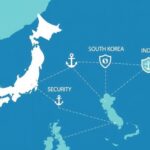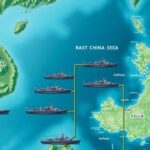Politics
ASIA, AUSTRALIA, BEIJING, CHINA, CHRISTOPHER ELMS, CLEAN ENERGY, CUBA, DEFENCE MINISTRY, DEFENSE, GEOPOLITICS, INDIA, INDO, INDO - PACIFIC, JAPAN, MANILA, MEXICO, MILITARY COOPERATION, MILITARY EXERCISES, MINISTRY OF DEFENSE, NEW DELHI, NORTH AMERICA, OCEANIA, PACIFIC, PHILIPPINES, REPUBLIC OF KOREA, REUTERS, ROMEO S. BRAWNER, S. ALLIANCE, SHIVA, SHIVAM PATEL, SOUTH CHINA SEA, SOUTH KOREA, SOUTHKOREA, U. S, UNITED STATES
Nia Simpson
Japan’s Support for Enhanced Security Ties with India and South Korea in the Indo-Pacific
Japan endorses stronger security cooperation with India and South Korea in the Indo-Pacific, emphasizing the importance of alliance-building amid rising tensions with China. The initiative aligns with broader U.S. efforts to enhance regional defense networks, as noted by the Philippines’ military chief. The move aims to address the evolving security landscape shaped by recent confrontations in the South China Sea.
Japan is expressing support for enhanced security cooperation with India and South Korea in the Indo-Pacific region. This statement follows remarks by the Philippines’ military chief regarding a U.S.-backed security group that aims to include both countries to assist in countering China’s influence. The Ministry of Defense of Japan emphasized the necessity of cultivating a robust network of alliances to address current security challenges effectively.
In a statement to Reuters, the Japanese Ministry of Defense acknowledged the importance of a multi-layered approach to collate regional allies and stressed that close collaboration with partners, including Australia, the Philippines, India, and South Korea, is crucial for maintaining a Free and Open Indo-Pacific. This comes at a time when Japan perceives the most significant security challenges since World War II, necessitating fortified defense strategies.
General Romeo S. Brawner of the Philippines highlighted the ongoing push by squad nations to integrate Indian and South Korean participation for enhanced cooperative defense measures against China, especially following increasing tensions in the South China Sea. However, the Indian defense ministry and the South Korean embassy in India have yet to comment on this development.
The U.S. Embassy in India, represented by spokesperson Christopher Elms, reaffirmed its commitment to collaborating with partners to ensure the advancement of regional security and prosperity. Meanwhile, there has been no response from Australia’s defense ministry regarding these pertinent discussions.
In conclusion, Japan’s support for security ties with India and South Korea exemplifies a strategic move to enhance regional alliances in the Indo-Pacific. The importance placed on collaborative security efforts reflects a growing acknowledgment of the complexities in current geopolitical dynamics, particularly concerning China’s assertiveness. Overall, these developing partnerships are viewed as pivotal to achieving a secure and thriving Indo-Pacific region.
Original Source: www.hindustantimes.com








Post Comment